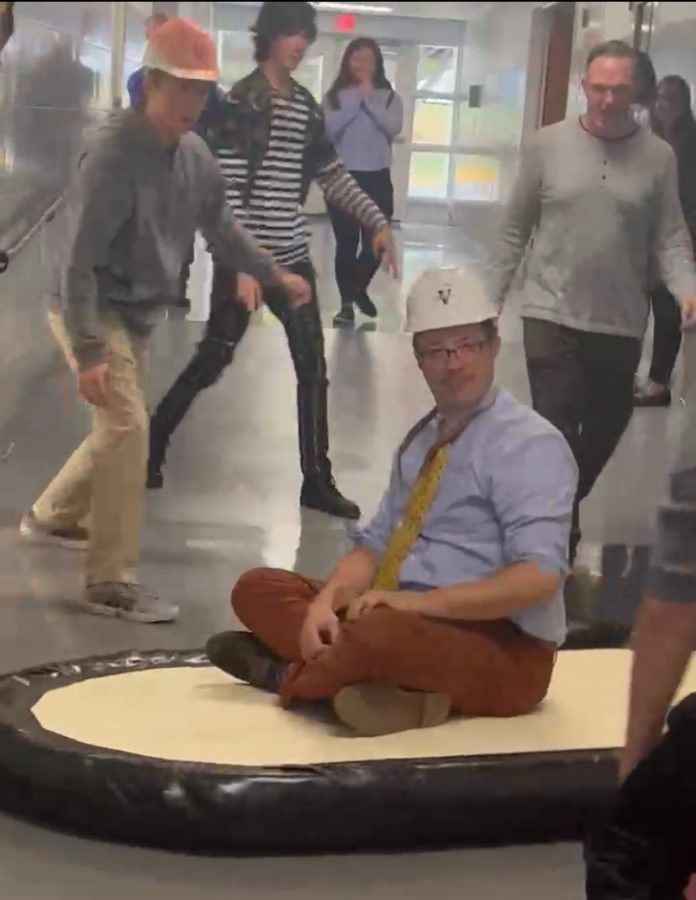Some claim that the library is a dying enterprise, but others are building their own in their front yards.
Little Free Library is a non-profit organization born in Wisconsin. The program created the concept of the “Little Free Library”- in which anyone can build a miniature library, often on his own private property, and become a “steward.”
By doing so, he is accepting the responsibility of running his “take a book, return a book” library. These little “habitats for the humanities” operate entirely under the honor system, according to the organization’s website.
A patron of a Little Free Library can take a book and return it, as with the traditional library, though there is no due date nor late fees. However, he can also take a book, and replace it with one of his own.
The organization’s mission is “to promote literacy and the love of reading by building free book exchanges worldwide, to build a sense of community as we share skills, creativity and wisdom across generations,” and “to build 2,150 libraries- as many as Andrew Carnegie- and keep going.”
They have long surpassed their 2009 goal of 2,150 libraries, as the organization’s website states that the “conservative estimate” of Little Free Library locations is between 5,000 and 6,000 in 36 countries around the world.
The organization also estimates that over 1,650,000 books were donated and borrowed between January 1, 2009, when the organization was born, and today.
Anyone can start his own library or support another’s, whether he sponsors one for someone else, orders one from the Little Free Library’s website, or builds it from scratch- tips to do so are on the organizations website-
Costs to order one’s own Little Free Library range from $250, for “The Basic”, to over $600, for the “Cedar Sunrise.”
If one decides to sponsor a library, $250 will help partially fund one, $750 will endow a small-town library, and $1000 will enable the organization to build a library in Africa.
The closest Little Free Library is only a few minutes away. At 57 Tuxedo Road in Montclair, one can find a Little Free Library run by Jon Bonesteel. He estimates that over 250 books have passed through the library, ranging from Catch-22 to Clifford the Big Red Dog.
Ten new Little Free Libraries were recently built in New York City as part of a project sponsored by the PEN World Voices Festival and the Architectural League of New York, as stated by a recent New York Times article. The libraries were built and designed by winners of a small competition, and then were filled with donations from publishers and authors, and are being taken care of by local community members.
The libraries will be in place through September 1. At that point, the organizers of the contest will decide if the libraries will become permanent.
Out of 80 submissions, ten designs were chosen. The winners were local architects, and many used recycled or sustainable materials.
Before the competition, there was only one Little Free Library in New York City, in Brooklyn, said the New York Times.
The PEN Festival offers free self-guided walking tours of the ten Manhattan Little Free Libraries. In one of the Little Free Libraries, a reader will find a bookmark inside the books that gives a “self-guided ‘reading journey’ to [the designers’] favorite reading spots… ending, of course, with another Little Free Library,” said the New York Times.
These particular designers, Bridgette Borders and Forrest Jessee, told the New York Times that their Little Free Libraries “reflected the social nature of reading.” Their winning designs include three wooden slatted seats which cover pre-existing concrete benches. The books are sheltered behind the seat backs.
“People like to read in groups, like to read in public,” Borders told the New York Times. “We’re hoping to bring people together around the activity of reading.”
One of the largest libraries is outside of Saint Patrick’s Old Cathedral School on Prince Street. The structure, which resembles a phone booth, has open sides and books enclosed in an upper level. The designers were shooting for a “Little Free Library you can inhabit,” said the New York Times.
At Cooper Union, a college in the East Village, a newly installed Little Free Library can be found in the gaps between the school’s library and the adjacent building. Cooper Union’s library was New York City’s first free public reading room, so the designers saw that it was fitting that their Little Free Library be next to it.
Jakab Orsos, the PEN World Voices Festival director, the New York Times that “Yes, it’s beautiful, it’s a romantic idea, everyone is going to be happy, but in two days’ time, they may see an end to a beautiful project.” because of their high-traffic locations. Stolen books or vandalism is a possibility.
The Little Free Library organization feels that stolen books are a non-issue. “You can’t steal a free book,” they stated on their website. “And if you have a good steward and lots of active users, eventually someone who tries to ‘steal’ books will realize that it’s not a good thing to do.”
“If this were just about providing free books on a shelf, the whole idea might disappear after a few months,” said the Little Free Library website. “Little Free Libraries have a unique, personal touch and there is an understanding that real people are sharing their favorite books with their community. These aren’t just any old books, this is a carefully curated collection and the Library itself is a piece of neighborhood art!”












